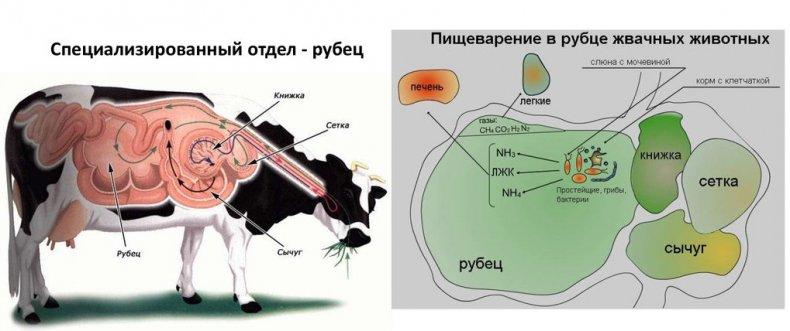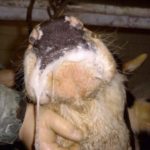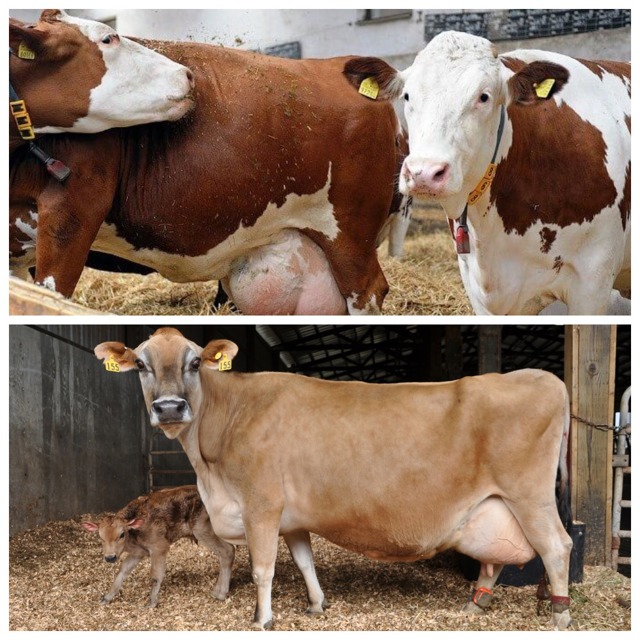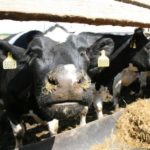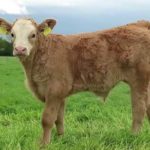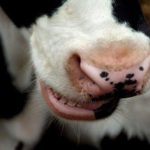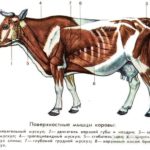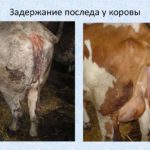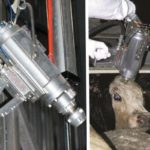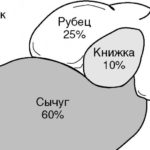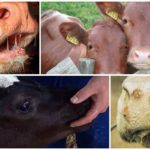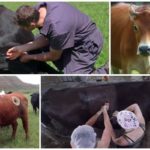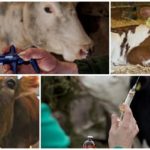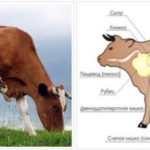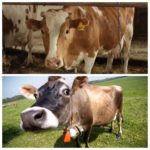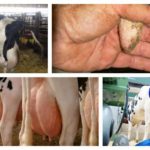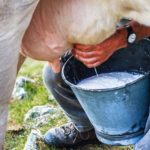If cows are salivating excessively, farmers should take immediate action by contacting a veterinarian. This problem often signals the development of some kind of livestock disease. Excessive saliva and foam from the mouth of ruminants may be associated with gastrointestinal dysfunction or inflammation. To figure out why a cow drools profusely and how to deal with it, you need to identify the cause and eliminate it.
Specifics of salivation in cattle
Once in the oral cavity, food is mixed with saliva, which is produced by the sublingual, parotid, submandibular glands, and small glands of the mucous membrane. Saliva is a colorless liquid that has an antimicrobial effect. Its release is a complex reflex reaction that is regulated by the central nervous system.
In cattle, the parotid glands secrete constantly, while the submandibular and sublingual glands produce saliva only during eating and when ruminating. Salivation is necessary to provide microorganisms with fluid and regulate the acid-base balance. Saliva moistens food when chewing and helps with swallowing. With its help, optimal water balance is maintained and absorption processes occur. Saliva performs a protective function in case of poisoning and participates in metabolic processes.
The intake of food with a high content of organic acids into the animal’s body leads to profuse salivation. Increasing internal ruminal pressure also increases saliva production. The intensity of its manifestation is influenced by the physiological state of the ruminant.
Why and what to do if a cow is drooling?
The reason for this manifestation may be negative processes occurring in the ruminant’s body. Farmers monitor the condition of their cows and seek help from a veterinarian, who determines the causes of the disease.
Stomatitis
The cause of inflammation can be:
- eating hot food;
- consumption of sharp, prickly vegetation;
- injuries in the mouth.
Signs of stomatitis are often hidden, making it difficult for a livestock breeder to determine why a ruminant is foaming at the mouth. The first sign is that the cow eats selectively, preferring soft food. When examining the oral cavity, you may notice swelling, dryness and cyanosis of the mucous membrane. The development of the disease is provoked by the accumulation of viscous mucus in the animal’s mouth, which flows out.
To prevent the occurrence of stomatitis, the cow is protected from eating prickly, sharp and poisonous vegetation. During treatment, the veterinarian prescribes a diet that includes: boiled vegetables, fresh silage, meadow hay. The oral cavity is periodically rinsed with a soda solution.
Poisoning
Animals grazing in meadows are at risk of severe poisoning from poisonous plants, as well as grass that has been treated with pesticides. After consuming toxic substances or grass, the animal shows the first signs of poisoning:
- vomit;
- diarrhea;
- increased salivation;
- dilated pupils;
- rapid breathing.
To prevent the risk of poisoning, animals are looked for in an optimal place for grazing and provided with high-quality food. When the first signs of poisoning appear, the animal is given medications and the stomach is washed with a solution of potassium permanganate.
Rumen tympany (bloating)
The accumulation of gases in the stomach causes bloating. This disease appears after eating easily fermented or stale feed.
The cause of the animal's pathological condition may be intestinal blockage or an infectious disease.
The cow behaves restlessly, there is an enlargement of the abdomen, saliva flows profusely, and breathing quickens.During treatment, the veterinarian uses a gas probe to remove gases from the body. The animal is placed so that its legs are higher than its head. With bloating, medications help: “Ichthyol”, “Timpanol”, “Kriolin”.
Qatar gastrointestinal tract
The appearance of the disease may be associated with:
- consumption of low-quality feed by animals;
- violation of the diet;
- inflammation of teeth;
- insufficient conditions of detention.
There is a deterioration in the cow's condition, loss of appetite, and lethargy. A foul odor appears from the mouth and drooling occurs. Following a diet and improving living conditions will help eliminate the risk of developing the disease. When treating an adult, castor oil is given in the amount of 500-600 grams, and a calf - 50-100 grams.
Esophageal blockage
When ruminants consume large pieces of food, the gastrointestinal tract is disrupted. Blockage may occur as a result of diseases of the cardiovascular system or other important organs. The onset of the disease is accompanied by bad breath, copious amounts of saliva, and diarrhea with bloody discharge. When these signs appear, the animal is prescribed a diet, given plenty of fluids and castor oil.
Entry of a foreign body into the oral cavity or pharynx
If a foreign object is accidentally ingested, cattle become weak and their temperature rises. There is a strong secretion of saliva. If a foreign object gets in, the cow is limited in food for a day and given plenty of water to drink. After 24 hours, the cattle are given soft food. In exceptional cases, the foreign body is removed surgically.
For any symptoms, only an experienced specialist can determine the true cause of increased salivation.Therefore, at the first signs of illness, the farmer needs to seek help from a veterinarian, who will prescribe appropriate treatment.

